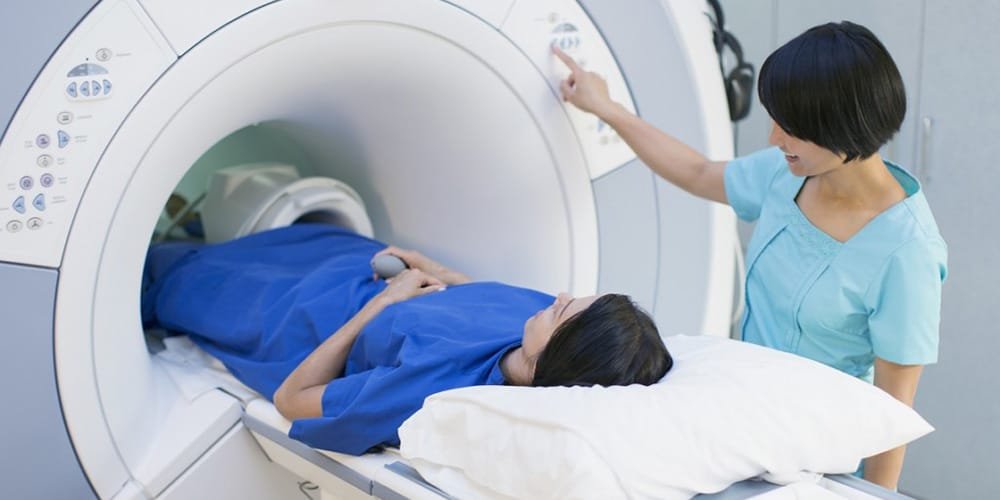Risk Assessment & Screening
Certain factors, including family history, may increase your chance of developing cancer. Atal Memorial Cancer Care recognizes the importance of assessing your cancer risk and of detecting the disease early, when there is the greatest chance of a cure.

If you have a history of cancer in your family, we can provide information about hereditary cancer and genetics. Our Clinical Genetics Service has specially trained genetic counselors and physicians who can discuss ways to minimize your cancer risk as much as possible.
Screening is also an essential part of cancer care and prevention. Our doctors have developed screening guidelines for the most common cancers – breast, cervical, colorectal, head and neck, ovarian, prostate, and skin cancer – based upon our experience treating patients at AMCC. We also offer many screening services at our state-of-the-art facilities in Manhattan and at our regional sites in the tri-state area.
In addition, our researchers have pioneered the use of cancer prediction tools to help patients and physicians decide among the major treatment choices for several cancers.
Cancer Type
At AMCC, we care for people with all types of cancer and allied diseases. Find detailed information about our approach to diagnosis and treatment, doctors who specialize in your type of cancer, and links to related news and resources.

Acoustic Neuroma (Vestibular Schwannoma)
Adrenal Tumors
AIDS-Associated Cancers
Appendiceal Cancer
Basal Cell Carcinoma
Benign Blood Disorders
Bladder Cancer
Bone Cancer
Brain Tumors (Metastatic)
Brain Tumors (Primary)
Breast Cancer
Cancer of Unknown Primary Origin
Cervical Cancer
Colon Cancer
Colorectal Cancer
Esophageal Cancer
Gallbladder & Bile Duct Cancers
Gastrointestinal Neuroendocrine Tumors
Gestational Trophoblastic Disease
Head & Neck Cancers
Kaposi Sarcoma
Kidney Cancer
Leukemia and Other Blood Cancers
Liver Cancer
Liver Metastases (Secondary Liver Cancer)
Low-Grade Glioma
Lung Cancer
Lymphoma
Male Breast Cancer
Melanoma
Meningioma
Merkel Cell Carcinoma
Mesothelioma
Mouth Cancer
Multiple Myeloma
Myelodysplastic Syndrome (MDS)
Ovarian Cancer
Pancreatic Cancer
Pancreatic Cysts
Pituitary Tumors
Prostate Cancer
Rare Blood Disorders
Rectal Cancer
Salivary Gland Cancer
Skin Cancer
Soft Tissue Sarcoma
Spine Tumors
Squamous Cell Carcinoma
Stomach (Gastric) Cancer
Testicular Cancer (Germ Cell Tumors)
Throat Cancer
Thyroid Cancer
Thymoma & Other Thymic Tumors
Tracheal Diseases
Uterine (Endometrial) Cancer
Uterine Sarcoma
BImmunotherapy
Immunotherapy is a form of cancer treatment that uses the immune system to attack cancer cells, in much the same way that it attacks bacteria or viruses.

This type of therapy seeks to harness different types of immune cells circulating in your body and has the potential to provide lasting benefits. Simply put, immunotherapy treats your body, and your body treats cancer.
In recent years, there have been major advances in the field of cancer immunotherapy, and this treatment is currently being investigated for many cancer types.
Types of Immunotherapy
Immunotherapy can be given in the form of drugs or as a cell-based therapy, which means that we extract and modify a patient’s own immune cells before infusing them back into the body.
Checkpoint Inhibitors :Checkpoint inhibitors work by releasing a natural brake on your immune system so that immune cells called T cells recognize and attack tumors.
CAR T Cell Therapy :Chimeric antigen receptor (CAR) T cell therapy is an approach in which scientists genetically engineer a patient’s own immune cells to make a new protein. This turns them into supercharged cancer fighters.
Cancer Vaccines :Therapeutic cancer vaccines train your body to protect itself against its own damaged or abnormal cells — including cancer cells.
To know more about Immunotherapy in Bhopal, Madhya Pradesh, get in touch with us. We’ll be glad to help you.